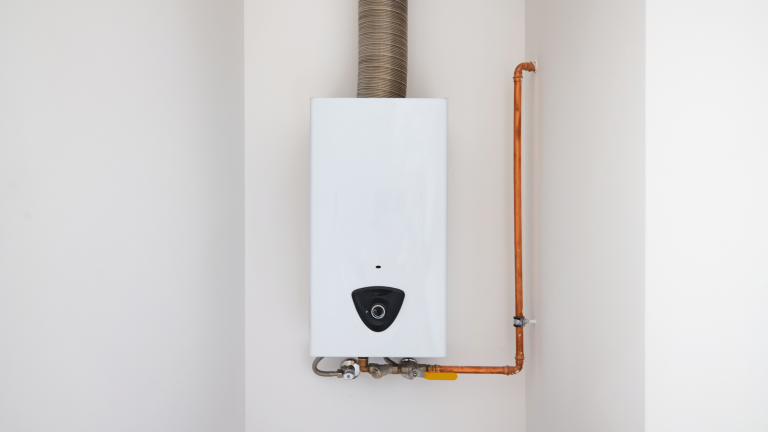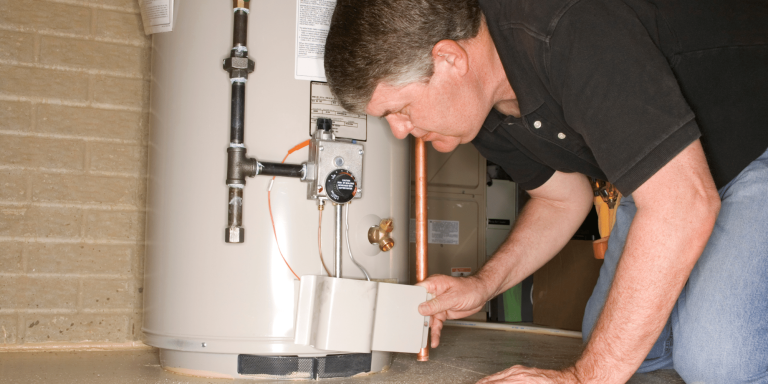Experiencing a sudden burst of icy cold water during a relaxing shower or a warm soak can be incredibly frustrating. If you’ve encountered these hot-to-cold-to-hot temperature changes in your tankless water heater, know you’re not alone. In this article, we’ll delve into the issue of temperature fluctuations in tankless water heaters, uncovering the underlying reasons and offering practical solutions to regain control of your bathing experience.
The Cold Water Sandwich: A Common Issue:
Imagine stepping into the shower, looking forward to warm water, but suddenly getting hit by cold water, then hot, and cold again, like a strange “cold water sandwich.” Many tankless water heater users have experienced this. Temperature fluctuations, though they might seem like a technical issue, are a common problem with these heaters.
Causes of Hot Water Temperature Fluctuations and How to Tackle Them:
1. Incorrect Temperature Setting:
Consult your tankless water heater’s manual to set the stage for a consistently comfortable shower. Manufacturers provide recommended temperature settings to ensure a safe and enjoyable bathing experience. Aim for the ideal temperature range—around 120°F—with a minimum of approximately 100°F and a maximum of 140°F (180°F for commercial use). Adhering to these settings can significantly reduce temperature fluctuations.
2. Low Water Pressure:
Low water pressure can be the culprit behind those unwelcome temperature changes. When water pressure falls below the activation flow rate, the tankless heater’s gas burner may shut down, leading to cold water surprises. To mitigate this issue, maintain a steady water pressure level and ensure it meets the manufacturer’s specifications.
3. Restrictions in Hot Water Flow:
Clogs or blockages in fixtures can disrupt water flow and cause temperature fluctuations. Regularly check and clean showerheads, faucet aerators, and plumbing fixtures to ensure unobstructed water passage. Some models offer flow control settings that allow you to manage water flow and maintain a more stable temperature.
4. Dirty Inlet Filter Screen:
Think of the inlet filter screen as your tankless water heater’s first defense against debris. A clogged filter can hinder water flow and contribute to temperature fluctuations. Periodically locate, remove, and clean the filter screen, ensuring proper water flow and heater performance.
5. Faulty Plumbing:
The intricate plumbing network in your home plays a crucial role in maintaining consistent water temperature. Ensure proper installation and regular maintenance to avoid issues such as mixing valve problems, failed washers, or faulty faucets. Perform simple tests to identify and address potential plumbing-related temperature fluctuations.
6. Missing Mixing Valve:
A missing or improperly set mixing valve can disrupt the delicate balance between hot and cold water, leading to sudden temperature changes. Verify the presence and correct mixing valve settings to help maintain a stable water temperature.
7. Power Source Concerns:
A stable power supply is essential for uninterrupted water heater performance. Power cuts or fluctuations can cause your tankless heater to cycle intermittently, resulting in temperature fluctuations. Ensure a consistent power source to prevent this issue.
8. Battling Cold Weather:
Extreme cold weather can impact water heater efficiency, especially if pipes freeze or struggle to deliver adequately warm water. Protect pipes from freezing and insulate your system to minimize temperature fluctuations.
9. Navigating Recirculation System Problems:
A malfunctioning recirculation system, operated by a circulation pump, can disrupt water flow and temperature stability. Check the pump’s operation, address air buildup, and ensure the pump size matches your water demand to prevent fluctuations.
Also Read This: 10 Possible Reasons Your Water Heater Is Not Working
How to Fix Hot Water Temperature Fluctuations:
Dealing with hot water temperature fluctuations in your tankless water heater can be frustrating, but effective solutions can restore a consistent and comfortable bathing experience. Here are some steps you can take to address and eliminate temperature fluctuations:
1. Adjust Activation Flow Rate:
One way to combat temperature fluctuations is by adjusting the activation flow rate of your tankless water heater. Increasing the flow rate to meet the heater’s activation threshold can help minimize temperature variations caused by low water pressure. By ensuring that the water flow rate meets the heater’s requirements, you can maintain a steadier hot water supply, reducing the chances of sudden cold water bursts.
2. Install a Water Softener:
Mineral buildup, often caused by hard water, can contribute to clogs and obstructions within your tankless water heater system. Installing a water softener can effectively address this issue by reducing the mineral content in the water. Softened water improves your heater’s overall performance and efficiency and helps prevent blockages that can lead to temperature fluctuations. A water softener can provide a more consistent hot water supply by maintaining clear, unobstructed pathways.
3. Upgrade to a Modern Model:
Consider upgrading your tankless water heater to a newer model with advanced features to minimize temperature fluctuations. Some modern tankless heaters come equipped with automatic bypass systems and buffer tanks. These innovative features maintain a stable water temperature even when demand fluctuates. The automated bypass system diverts a small portion of the hot water back into the cold water line, ensuring a constant flow of hot water. Buffer tanks are designed to store a small amount of pre-heated water. This helps prevent sudden temperature changes when water is drawn from the system. If you upgrade to a modern tankless water heater, you can enjoy a more consistent and reliable hot water experience.
Professional Plumbing Assistance:
When dealing with hot water temperature fluctuations in your tankless water heater, seeking the expertise of professional plumbers can make a significant difference. Plumbing experts, such as Heaters Hut, Skilled plumbers fix water pressure issues and ensure a seamless hot water experience.
Conclusion:
Hot water temperature fluctuations in tankless water heaters can be a nuisance, but with the right solutions, you can enjoy a more predictable and comfortable bathing experience. By adjusting the activation flow rate, installing a water softener to combat mineral buildup, or upgrading to a modern tankless water heater with advanced features, you can effectively address temperature fluctuations and ensure a consistent hot water supply. Remember, maintaining your water heater and seeking professional assistance can help you make the most of your tankless system and enjoy the luxury of uninterrupted, reliably warm showers and baths.





